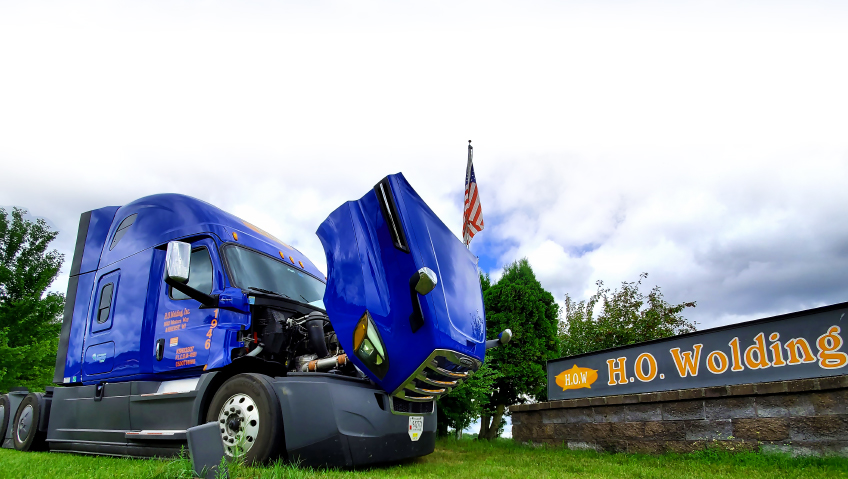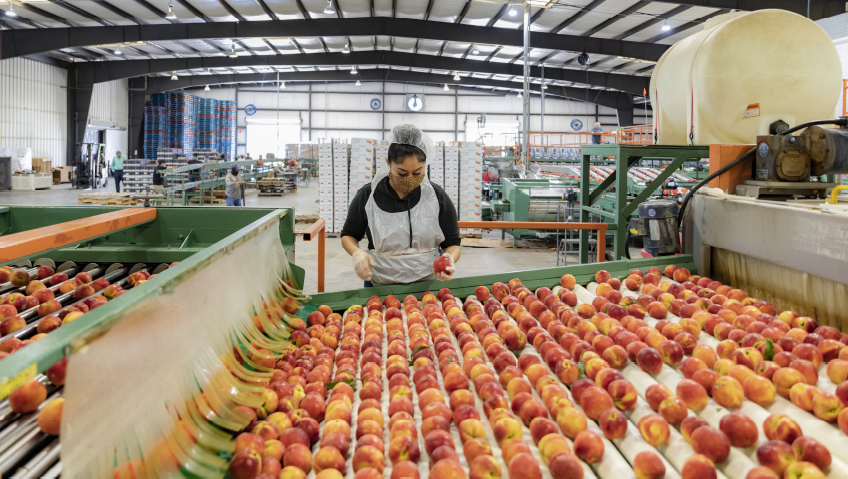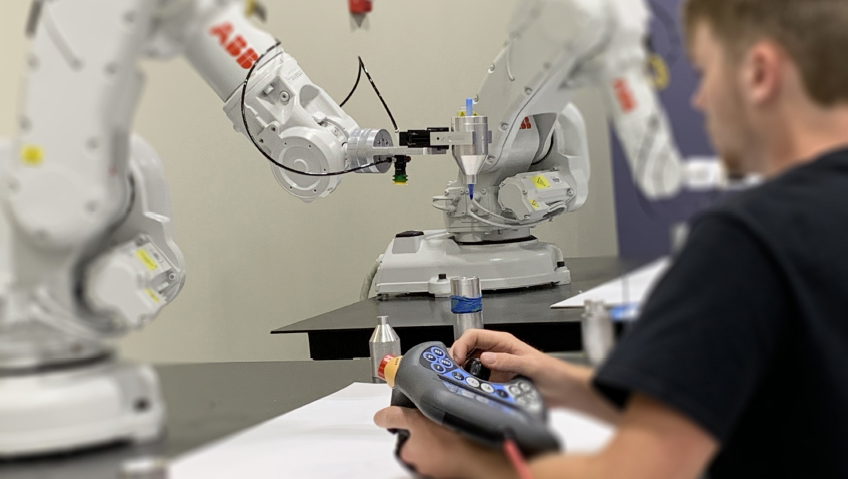In a pandemic world, businesses and consumers alike moved to safe, reliable online delivery, and away from traditional shopping. With this added strain on supply chains, H.O. Wolding shows how the transportation industry can shoulder new demands.
From the small town of Amherst, Wisconsin, the powerhouse of H.O. Wolding provides safe and reliable trucking options across the continental United States. With a strong emphasis on driver amenities and retention, the company is enjoying regular growth to help drive economic recovery – literally.
We first spoke with H.O. Wolding representatives back in 2019, in a very different world. Since the company’s founding in 1935, H.O. Wolding has continually championed better and more efficient shipping methods, ever since founder and namesake Herbert Wolding developed new ways by which trucks could ship freight faster than trains.
Over nearly 90 years, H.O. Wolding has expanded from one truck to over 320, with over 1,000 trailers.
An example of H.O. Wolding’s continual emphasis on new technologies is its 2004 enrollment in the SmartWay program. H.O. Wolding is the first transport company to seek such enrollment for its day cab tractors.
The brainchild of the U.S. Environmental Protection Agency (EPA), the SmartWay program was created to counter the rising greenhouse gas emissions from a higher number of trucks on the road. (The EPA estimates emissions from global freight operations will surpass those from passenger vehicles in 2050, with the possibility that pandemic-related buying trends may accelerate this.)
Today, SmartWay brings together over 3,700 North American businesses with cutting-edge equipment to reduce idling time and increase fuel efficiency. By providing advanced equipment such as Auxiliary Power Units (APUs), which allow trucks to run electrical systems via batteries rather than gasoline, SmartWay helps both carriers and suppliers in land, sea, and air freight reduce their carbon footprint.
Advanced emissions tracking devices help businesses to measure their emissions output with unprecedented accuracy, enabling proactive measures to improve efficiency and reduce CO2. To date, the EPA estimates it has helped private industries save over 300 million barrels of oil, and reduce air pollution by 150 million tons.
While SmartWay demonstrates H.O. Wolding’s commitment to a reduced carbon footprint and more efficient business model, the company’s investment in future equipment is also evidenced by its continually upgrade fleet of tractors.
“Our fleet is incredibly modern, compared to 2019,” says Social Media & Marketing Specialist Joseph Lieggi, who estimates that 70 percent of the company’s tractor fleet consists of newer models with additions or replacements of three to five trucks and trailers monthly.
Indeed, Lieggi remarks that one of H.O. Wolding’s most notable features is the incongruity of the company operation – a relatively small company with barely five hundred employees in an equally small town, but with a fleet of over 300 imposing trucks. “It’s really nice to be able to see that!”
Newer models may be a significant investment, Lieggi says, but the advances more than justify the cost. H.O. Wolding boasts some of the latest models from Freightliner, embodying many of the latest advances in trucking technology.
Freightliner’s new Cascadia 2021 model, for instance, boasts an Optimized Idle (or Opti-Idle) system to regulate temperatures and, as the name implies, idles the vehicle less often to save fuel. The majority of company trucks now also have automatic transmissions, a real upgrade over the traditional manual transmission.
Other additions such as lane departure sensors, automatic brake detectors, crash detection and anti-roll systems have helped H.O. Wolding maintain a safety rating of 1.25 from the U.S. Transportation Safety Administration, the highest such rating the TSA can bestow. “Think how it was fifteen years ago,” Lieggi remarks. “Nowadays, everything is monitored for you. It’s just incredible.”
But while H.O. Wolding rightfully takes pride in its infrastructure, the greatest benefit to its recruitment efforts remains its focus on retaining drivers through providing outstanding amenities.
Lieggi lays out the company’s philosophy succinctly: “Our number one focus is safety; our number two focus is driver happiness.” With a traditionally high turnover rate among truck drivers, H.O. Wolding is necessarily invested in the drive to provide drivers with the best possible working conditions.
And when the U.S. Department of Transportation (DOT) modified its regulations to allow drivers to drive longer hours and more miles, the company’s ranks swelled. Lieggi remarks how, unlike many other sectors in 2020, trucking actually expanded as growing gaps in the supply chain needed to be filled. “No matter who you are, the freight you need is likely delivered by a truck.”
This industry growth initiated growth not only of the driver corps, but of H.O. Wolding’s office staff as well, leading to greater logistical and maintenance support. Hiring in the midst of a pandemic might have been a risk, but a necessary one to accommodate the consequences of expansion of capabilities.
“The needs of the company are growing,” Lieggi says, and the company’s rebound is still ongoing. “It’s a silver lining within the gray cloud of COVID.”
The largest single factor affecting driver retention, predictably, is a higher salary. “We do like to increase our pay package to continue to be the most competitive, or among the most competitive pay packages,” Lieggi says, noting that this package has increased for at least the past two years annually.
As he explains, it’s a simple numbers game. “We want our drivers to stay. We want them to feel like they’re being treated well and compensated appropriately. If they’re not feeling that way, they’re going to leave.”
In addition to higher salary packages, H.O. Wolding has revamped its referral system to compensate drivers who bring in new hires. Through a wealth of online applications, the company not only increases total referrals but can also easily track who made the referral in the first place.
“It’s a lot easier way to track and trace exactly who is being referred, and who they’re being referred by, to make sure that the person who referred them gets their awesome referral bonus,” Lieggi says, adding that drivers receive between $50 and $2,000 per referral.
In addition to high salaries and bonuses, H.O. Wolding tries its best to accommodate each driver’s needs. Hourly and regional hourly positions are offered alongside traditional long-haul positions, providing degrees of flexibility to offer more long-distance runs or multiple shorter runs to keep drivers closer to hearth and home.
“If you’re in the Northeast region, and you know you’ll be sitting in a lot of traffic,” Lieggi explains, “we’re going to give you an hourly-paid position, so you can get a livable wage that’s still competitive with everyone else.”
By paying drivers hourly and not just per delivery, H.O. Wolding can ensure drivers are suitably compensated even if they are delayed by traffic or weather.
This focus on safety and driver retention, as well as H.O. Wolding’s deceptively small size, considering its output, has helped the company cultivate its family atmosphere.
“We have that family value, but we’re nationally recognized,” Lieggi says, “which means you’re not going to be pulled over on the side of the road waiting for your next load from your dispatcher for hours or days.”
This is in stark contrast to other trucking companies which can have long wait times. But with over 320 trucks and more than double that in trailers, there’s always somewhere to go and something to deliver. “You’re constantly moving, and you’re constantly making money.”
Now H.O. Wolding is moving beyond its traditional recruitment strategies to bring in outside drivers on a more casual basis.
The company’s Power Only Program intends to hire independent drivers on a freelance basis. While the company still provides all infrastructure – trucks, insurance and all relevant documentation and maintenance – drivers would be able to haul H.O. Wolding loads, anytime, and receive 80 percent of the load’s value as compensation upon delivery.
With no non-compete clauses and right of first refusal, Power Only offers independent drivers the flexibility to work with H.O. Wolding on a casual basis. “It really boils down to personal preference,” Lieggi remarks, and the program provides additional flexibility for H.O. Wolding to offer more work when its driver corps is stretched thin.
As our world continues to adapt to COVID, and our economy continues to transition away from traditional shopping to a delivery model, transport companies like H.O. Wolding will continue to grow.
Lieggi and his colleagues know that, to sustain this growth, the company must bring additional resources to bear. “We’re realizing that technology is changing and developing, and the old-school ways aren’t necessarily working anymore,” he says, referring to traditional job ads on hiring websites.
New ideas and innovations like an enhanced social media presence are now required, if only for advertisement and referral. “What better place to try than Facebook?” Lieggi asks. He notes that 81 percent of truck owner-operators and 79 percent of company truck drivers use the platform every day.
Despite increasing calls for regulation, social media giants such as Facebook still represent the new frontier in recruitment, Lieggi says, and H.O. Wolding intends to be at its forefront. “We’re really going to be integrating ourselves into the future instead of just sticking to where we are right now.”
This forward-thinking attitude continues to reflect H.O. Wolding’s philosophy of having the latest technology, an attitude Lieggi shares.
“When we see new tech come out that we think might benefit us – on the recruiting side, or drivers’ side, or safety side – we’re looking at it, we’re taking it seriously, and we’re trying to incorporate it if it can work with us,” he says.
With H.O. Wolding’s long history of driver retention through amenities and flexibility, the company will continue to provide a strong example of success and innovation in the transport industry.






